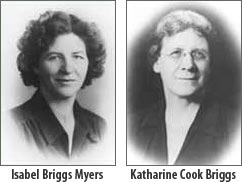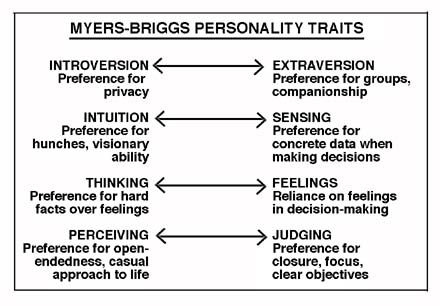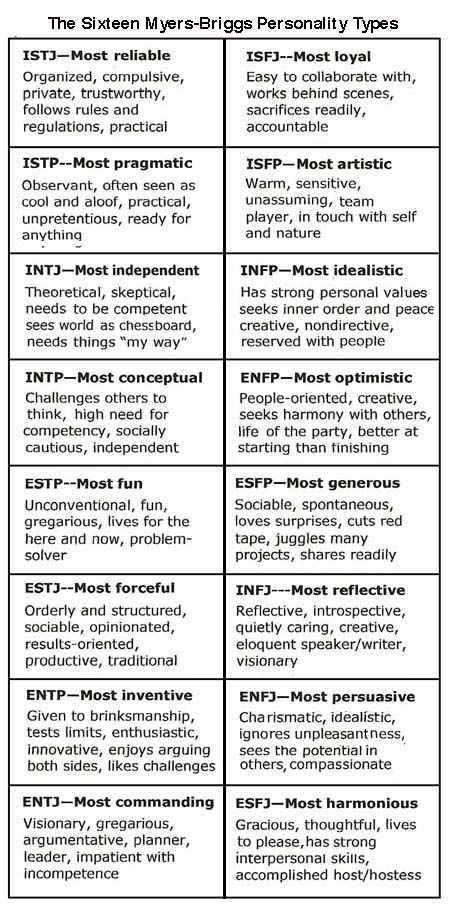It’s Hard To Be an INFJ—The Rarest Myers-Briggs Personality Type
- Aria Fox
- Infj , Isfj , Myers briggs personality types , Your secret self
- August 2, 2023
Myers-Briggs Inventory
Isabel Myers and her mother, Katharine Briggs—both psychologists— developed the Myers-Briggs Personality Inventory more than fifty years ago.
Carl Jung

They were looking for a way to classify different types of personalities and describe them using the theories of Carl Jung, the famous Swiss psychoanalyst. They wanted to create a tool to help people understand themselves and others.

The Myers-Briggs Inventory was first published in 1975. Its practical applications have been expanding ever since—in schools and colleges, business, counselors’ offices, and other settings.

The Myers-Briggs scale consists of four pairs of personality traits—each representing opposite ends of a continuum.
Myers-Briggs test scores show where an individual’s personality lies along each continuum, with capital letters used to identify the dominant traits.
Introversion-Extraversion
The introvert (I) needs privacy and solitude, generally avoids large social gatherings, and is happiest either alone or in the company of one or two good friends. The extravert (E) gets uneasy when alone too much, seeks the company of others, and enjoys mingling.
Intuition-Sensing
Intuitive (N) people tend act on their hunches, which are usually sound. They’re skilled at sizing up others and knowing when situations are risky. At the other end of the scale, people of the sensing (S) type don’t trust impulsive judgments. They prefer solid data and rely on what they can see and feel. Privately the intuitive type thinks the sensing type is earthbound and unimaginative, while the sensing type thinks the intuitive type is impulsive.
Thinking-Feeling
The thinker (T) is ordinarily rational and cool when making decisions—not prone to emotional reactions. The feeling (F) person is more likely to be swayed by sentimental considerations and has a softer heart.
Judging -Perceiving
The judging (J) type is more focused and comfortable with closure than the perceiving (P) type. People with a dominant judging function rarely miss deadlines or are tardy for appointments. The perceiving type is more happy-go-lucky, often has several projects going at once, and is more casual about deadlines.
When making a major purchase such as a car, the perceiving type enjoys the information-gathering and comparison-shopping part, but is a little uneasy once a selection has been made—worrying that more research should have been done.
The judging person is glad the purchase has been decided upon and the check written.
It’s Hard To Be an INFJ
INFJs make up only 1% to 3% of the population, the rarest of the personality types. They tend to be perfectionists who fear they aren’t living up to their potential. INFJs can always list the things they’ve left undone but have a hard time counting their accomplishments.
INFJs hold strong convictions and are deeply affected by the suffering of others. However, because they are introverted, they prefer thinking about weighty issues to talking about them. Those who are activists—a role toward which they gravitate—take up causes for moral reasons, not for personal glory or political power.
The INFJ is often found at disaster scenes as a rescue worker. When a person of this type sees people or animals being treated cruelly, he or she may fantasize about getting revenge on the perpetrators. Although INFJs are gentle by nature, they are formidable in battle.
The highly developed intuition of INFJs warns them when trouble lies ahead—for themselves or the world. Some people find INFJs pessimistic or even a little paranoid.
However, INFJs are more often right than wrong because their intuition is so accurate.
This ability makes them effective problem-solvers with the ability to act insightfully and spontaneously.
When INFJs move into their extraverted mode, as they sometimes do, they can express a range of emotions and opinions quite effectively as they have excellent verbal skills. However, they tend to be cautious about revealing their positions. Like other feeling-judging types, they frequently feel caught between the desire to express their opinions and their reluctance to offend people. Some INFJs vent their private feelings to a few trusted friends. The friends are chosen with care, and the relationships are usually characterized by affection and trust.
When INFJs turn from their feeling to their thinking function, they may appear aloof. Others sometimes conclude that this detachment reflects cynicism. A friend might fear that the insightful INFJ is so perceptive about human nature that the friend himself or herself is being judged. Generally this is not true at all. The INFJ is simply distracted by the need to focus and think. Under stress, INFJs are likely to overlook what’s going on in their immediate environment.

